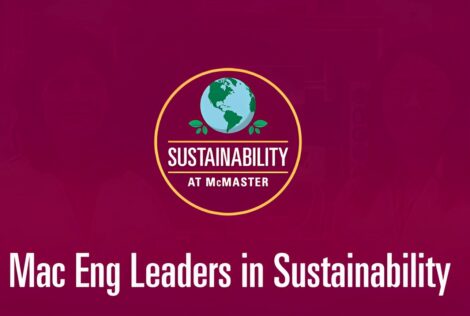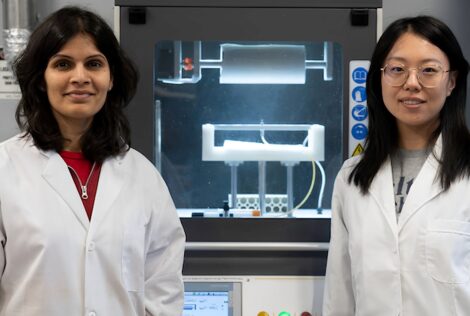
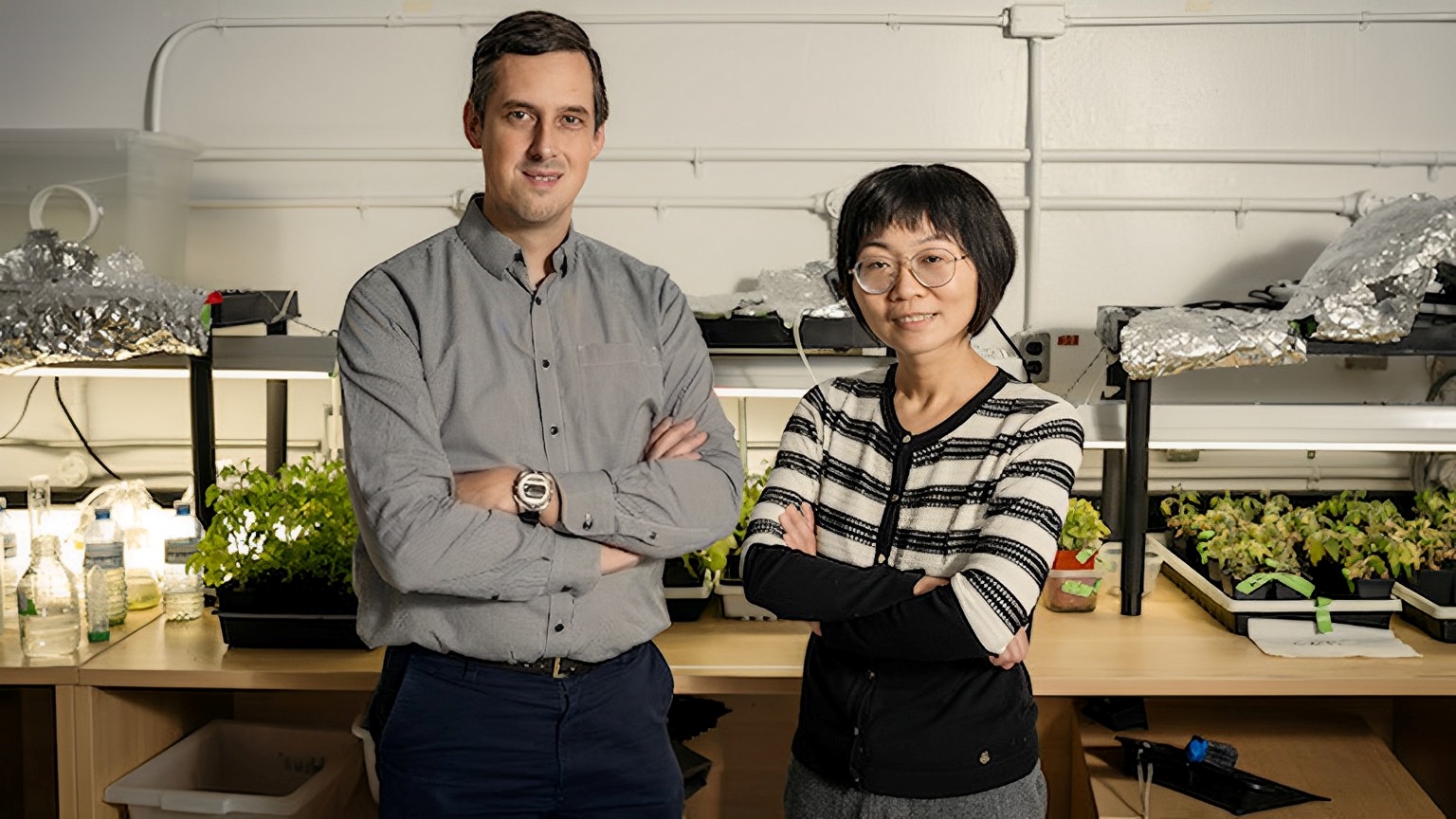
A partnership between McMaster Engineering and Suncor is working to revolutionize the agriculture industry with the invention of a new spray that gives plants the power to self-heal.
Every year, crops across Canada are sprayed with pesticides, herbicides and fungicides. These harsh chemical sprays pose a threat by disturbing natural ecosystems, contaminating soil and water and causing health problems in individuals who consume them.
Todd Hoare, chemical engineering professor, has teamed up with energy company Suncor to help reduce the negative impacts of chemical sprays with a new spray that enables plants to fight their own battles.
The soft chemical spray, made up of natural or less toxic chemicals than traditional sprays applied on crops, works to make plants photosynthesize better to effectively fight off infections and pathogens on their own. This was achieved by using materials called photosensitizers that use sunlight to activate entities that kill bacteria. Photosensitizers are traditionally used in cancer treatments.
We are very conscious of the chemicals we use; the soft chemicals being used for this spray are not only safer for treating food, but they also actively reduce the negative impact hard chemicals traditionally used in agriculture have on the environment.
Hoare’s team at McMaster is conducting research to test the efficiencies of the soft chemical mix by ensuring they can be kept stable in storage and break down at the correct rate, essential to reduce the frequency of application needed by farmers. In addition, pathogens can be present in plants in a variety of ways; on their surface, in their circulatory system and in their cells. As such, designing the spray so the active components can reach the necessary area of the plant to treat a given infection is essential.
“This is where McMaster Engineering’s nanomaterials expertise comes into play. Our job is to get the active agent through the barriers presented by plants and keep it working,” explains Hoare.
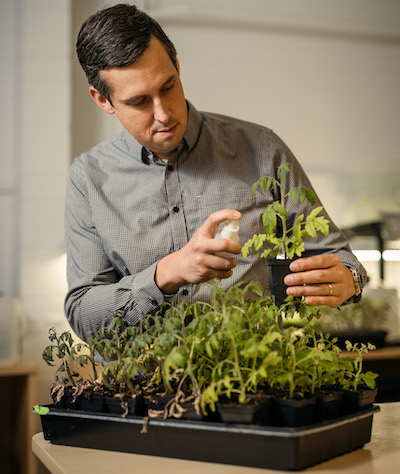
The partnership between McMaster and Suncor began in 2017, when Liu reached out to her post-doctoral supervisor, chemical engineering professor Dr. Robert Pelton, once she realized that the lab work she had participated in as a post-doctoral fellow at Mac aligned with the developments Suncor was striving to accomplish.
Lisha Zhao, who was also a post-doctoral fellow at Mac Eng in 2017, now works for Suncor in the partnership with McMaster.
“From the very first meeting we sensed there was a lot of good chemistry there,” says Liu.
What is the key to this partnership’s success? Hoare credits the direct in-person collaboration happening on McMaster’s campus.
“I think that’s an important piece in this collaboration because it really facilitates technology transfer from the university to the company. If people aren’t together and talking regularly, it’s a lot harder to do effectively.”
The in-person collaboration has led to the development of new facilities to support the research being done by this impactful partnership, including a hydroponics facility and a bacterial cell lab sponsored by Suncor.
“We’re always interested in new technologies that use unique mode of actions or unique approaches to deal with problems that are commonly dealt with in other ways,” says Hoare.
There is a major gap in the research and training opportunities in the agriculture industry, says Hoare. He points out that while Canada has an enormous agriculture industry, there is a severe lack of academic activity being conducted to explore, improve and create solutions to combat the industry’s effect on the environment, sustainability and climate change.
“This partnership has led to new undergraduate research training opportunities in developing practical, sustainable solutions and technologies that will advance innovation in this important sector.” says John Preston, Associate Dean of Research, Innovation and External Relations.
Undergraduate students, Colin Stark and Emma Chalupka, are co-op students who work in this lab and gain experiential learning from top professors and industry leaders.
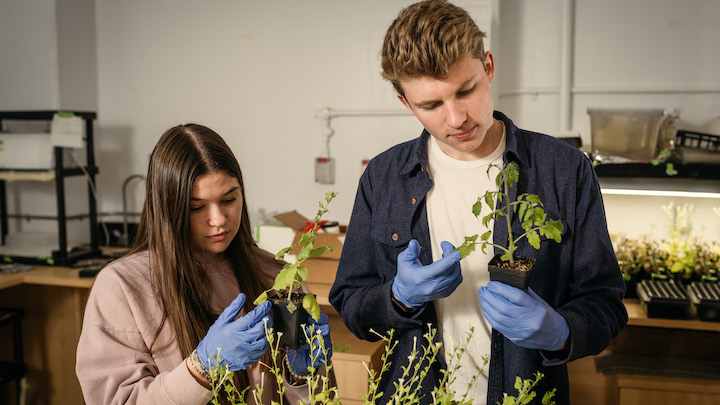
“This collaboration is not just one between McMaster and Suncor, it is a collaboration between everyone involved in all stages of the projects we’re working on. It’s industry leaders supporting researchers, supporting students. Everyone plays a role in bettering one another and pushing the limits of what we can achieve with this partnership.” says Hoare.

